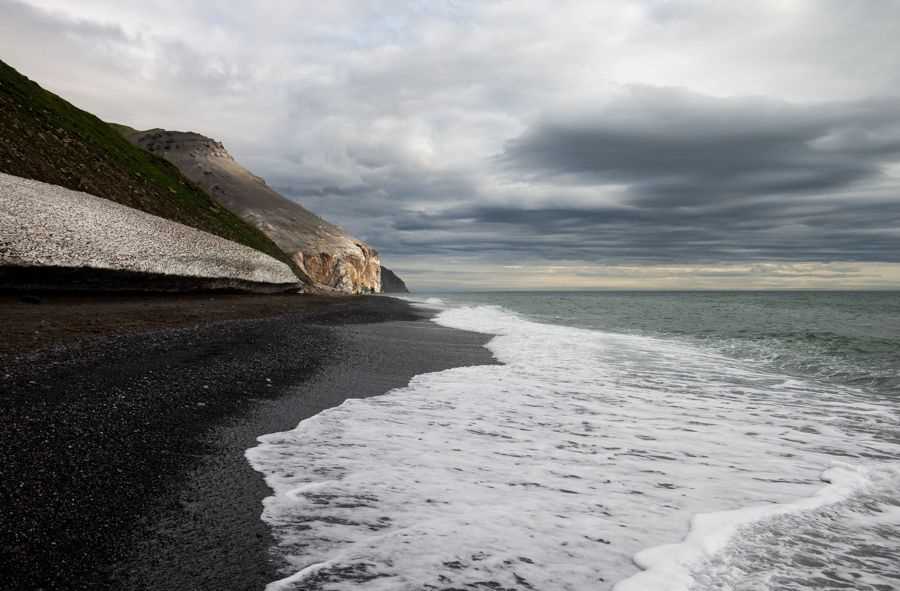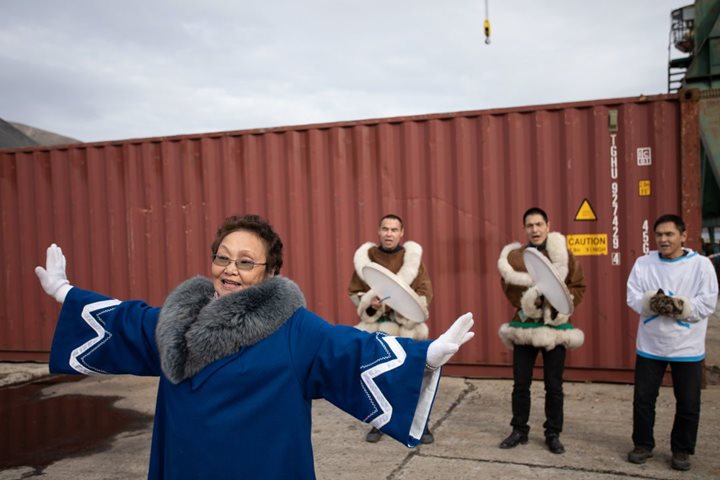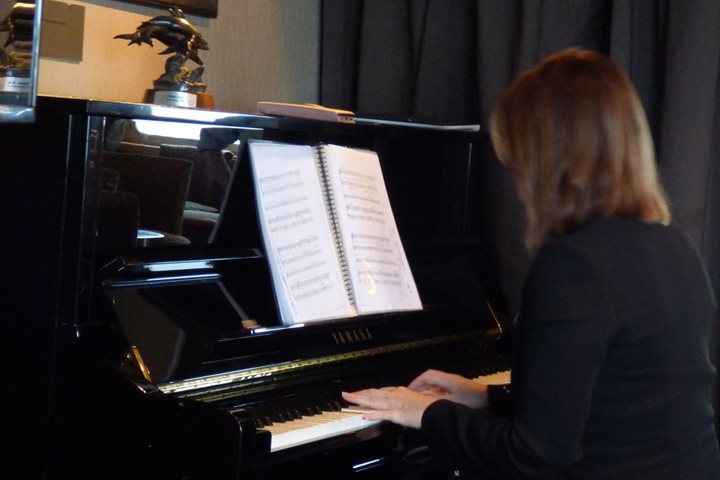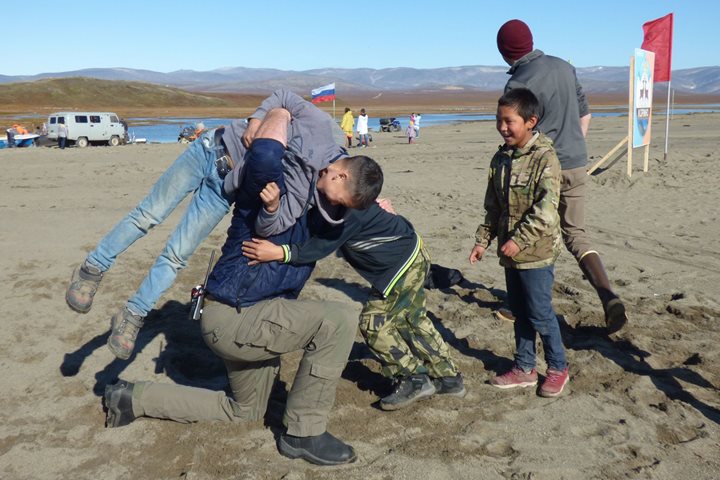No other part of the Russian mainland is closer to the United States than where we were today. Cape Dezhnev, named after the first Russian explorer to span the waters between the Eurasian and North American continents in the 1600s (it would be 100 years later that George Steller actually stepped ashore), sits 48 miles to the west of Alaska and was once home to 800 people of Siberian Yupik descent.
In the 1950s, as the Russian empire found more and more need to guard their eastern margin, numerous communities, including those living in the historic village of Naukan, the remains of which we visited this morning, were relocated to more centralized outposts across Russia’s Far East. What remains on this cape today are the stone houses the Naukan villagers had to leave behind when the Russian military moved in, as well as what’s left of the military outposts that lead to the native resettlement. Both are a stark reminder of the weight this very remote part of Russia holds for the country at large and the communities who once called this place home.
After our visit to this steep, rocky, remote, eastern corner of Russia, we headed north to the village of Uelen. 800 people strong, this coastal town is home to mostly Chukchi speaking native Russians. Our welcome was warm and our time in the community was varied. From a dance performance that spanned the generations, to a food tasting that covered the gamut of local cuisine, to a museum visit showcasing the carving skills possessed in this town, all activities were offered with a smile and pride.
Though only a few miles to the north, the town of Uelen has its own history and feel, each very different than that of Naukan’s uprooted past. While the houses in Uelen are all made of modern, wooden construction, the people here have not lost their connection to the lifestyle practiced by their ancestors of only a couple generations back. Moving from old to new – Naukan to Uelen – was a powerful way of revealing not only historical connections but cultural ones as well and getting a feel for how the old continues to impress its self upon the new all these years later.







